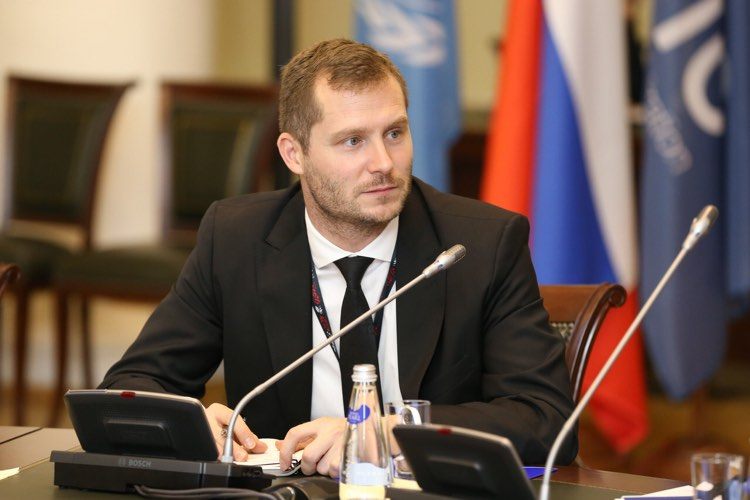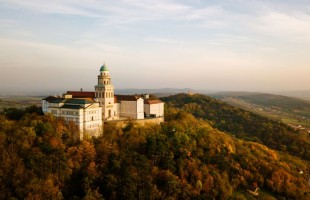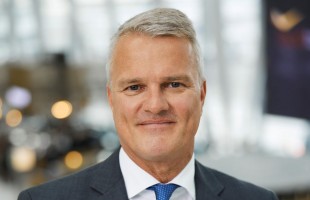UNWTO: The tourism industry is facing a shift in paradigm
What will happen to those countries whose economies heavily depend on international tourism? How and by what means can UNWTO help them, and where do you experience the greatest need for intervention?
In one hand, UNWTO provides political support in the form of mainstreaming tourism at the highest political level, and on the other hand the Organization offers direct technical support, assistance and expertise to the countries. By addressing the importance of tourism to the socio-economic development of the countries to Presidents and Prime Ministers, UNWTO’s Secretary-General aims that tourism is getting its necessary attention and the so needed governmental support and measures to mitigate the impact of the crisis. Of course, our members are not exactly at the same stage of tourism development, therefore our technical assistance and knowledge is needed differently. Countries which economies are relying much more on tourism of course are suffering severely the impact and would need special attention and care and would benefit from the Tourism Recovery Technical Assistance Package.
UNWTO has identified the following technical assistance activities aimed at stimulating and accelerating economic recovery: Measurement of the Impacts of COVID-19, Country-specific Tourism Recovery Plans, Support Programme for Tourism MSMEs, Reorienting the Tourism Value Chain towards Sustainability. UNWTO calls for financial and political support for recovery measures aimed at tourism, and to include support for the sector in the wider recovery plans and actions of affected economies. Within this context, UNWTO is also working as part of the wider UN response to COVID-19, emphasizing the role tourism can play in shielding especially developing countries and the most vulnerable members of society from the worst impacts of the current crisis. In this context, we are enhancing our strong partnerships with international financial institutions, such as the World Bank, the Asian Development Bank, the European Bank for Reconstruction and Development (EBRD), etc. and working together with the objective to address those specific needs of those individual countries.
 |
|
Peter Janech: The tourism industry will be facing a new post-COVID-19 reality “the new normal” |
|
Fotó: UNWTO |
The UNWTO has held the World Tourism Day on the 27th of September, every year since 1980. Do you have plans, that how will event series take place in this year?
World Tourism Day is commemorated each year on 27 September and its purpose is to foster awareness among the global community of tourism’s social, cultural, political and economic value and the contribution the sector can make in reaching the Sustainable Development Goals. While the “official celebration” might take place in a different way or manner (it will depend on reopening of boarders and the epidemiological development, particularly in Mercosur, selected host for the 2020 celebration), World Tourism Day will always be celebrated, especially in these challenging times. Each of us can celebrate WTD in our own way. The world celebrated variously international days during the COVID-19 outbreak, in the spirit of solidarity and by using smart solutions offered by our digital world. We will continue to raise awareness of the positive impact Tourism can have in the sustainable socio-economic development of the countries.
What do you think, how will this unprecedent crisis change the future activities and the focus of UNWTO’s work agenda?
In the COVID-19 aftermath, organizations and countries have to be prepared for a new reality in the tourism and travel industry and make every possible effort to re-shape the sector accordingly. It is advisable that countries try to make optimum utilization of available resources, knowledge and experience to put the sector back on rails. Europe, which is one of the most affected regions, has the responsibility to continue leading this transformation and make sustainability and green and digital transformation part of the recovery agenda.
The Management Vision proposed by the Secretary-General in 2018 was based on four strategic objectives, such as to position tourism as a policy priority and to lead in knowledge creation and policy, ensuring leadership for the Organization and the sector in the long run and five programmatic priorities for the 2020-2021 period:
- Innovation & digital transformation
- Investment & entrepreneurship
- Education & employment
- Safe, secure & seamless travel
- Social, cultural & environmental sustainability.
As you can see, these areas are still valid today and all of them are forming part -one way or the other- of any recovery package. Nevertheless, of course adjustments will be needed with the objective to face with the “new reality” in the best possible extent.
As the UN agency responsible for tourism and sustainable development, nonetheless, at this critical stage, we must act responsibly and sustainably, in consonance with the 2030 Agenda for Sustainable Development and the 17 Sustainable Development Goals (SDGs) contained therein. With tourism directly being referenced in SDGs 8, 12 and 14, on ‘Decent Work and Economic Growth’, ‘Responsible Consumption and Production’, and ‘Life below Water’, our sector can be linked, either directly or indirectly, to all 17 goals. Hence, by acknowledging the SDGs within our proposed actions, we underline our central message: Customized Solutions to Global Challenges.
Based on your opinion, how will the tourism change after the coronavirus epidemic? How will the future tourism and future travellers look like?
There are no rules or playbook for how the future tourism will look like, and the possible answer is constantly shifting. We must all recognize that “business-as-usual” in the travel and tourism sectors won’t be possible anymore. However, everybody agrees on one thing: once this is all over, people will travel again!
I think that the tourism sector will see a change in paradigm that will impact multiple fields, among these the decision to travel, the choice of destination and means, digitalisation and innovation, safety and security, sustainability and social return. Once travel resumes, we might see changes in travel habits, with travellers preferring closer destinations and shorter travel distances, with a potential shift in the mode of transport towards rails and cars in the short run. Over the long-term, the choice of destination will also be subject to the guarantees regarding health safety and mobility, as well as the sustainability of the destination and its establishments, which must be socially responsible in order for tourists to consider them.
We need to understand now that the tourism industry will be facing a new post-COVID-19 reality “the new normal” where destinations will be battling for the hearts and minds of a more sophisticated, more informed and even more digital traveller.
There will be a shift to seamless, touchless travel and a new health safety regime, supported by digital tools and biometrics technologies. Even if borders reopen, travellers will need to trust that boarding a plane is safe and that they will be able to enter the destination country without restrictions or even quarantine. Governments and destinations will need to develop and implement new health and safety protocols and rely, even more than before, on data analysis and measurement for efficient decision making to safeguard and protect consumers, while offering innovative and smart solutions to the stakeholders of the industry. When it comes to destinations, more than ever before, innovative digital marketing activities and targeted marketing will be central to help them spread their messages in a fast and cost-efficient manner to specific market segments, generating, hereby, interest and traveller confidence.
These are unprecedented times, which requires strong determination and immediate responses like never before. Europe has the chance to set an example for the rest of the world to follow and to lead to transform truly our tourism sector into a more sustainable and inclusive one. It will be crucial that all key actors, players, decision-makers of the travel and tourism sectors are able to work together constructively and supportively in order to make sure that their activity is as coordinated and compatible as possible given the nature of the sector which relies on connectivity and people to people’s exchange.
Rebuilding trust and confidence will be key to ensuring tourism recovers from this crisis. However, the global community needs to work together to encourage that people travel across borders again. International tourism has established itself as an important driver of sustainable development and we must allow tourism to continue to deliver benefits to individuals and communities all across the world.




